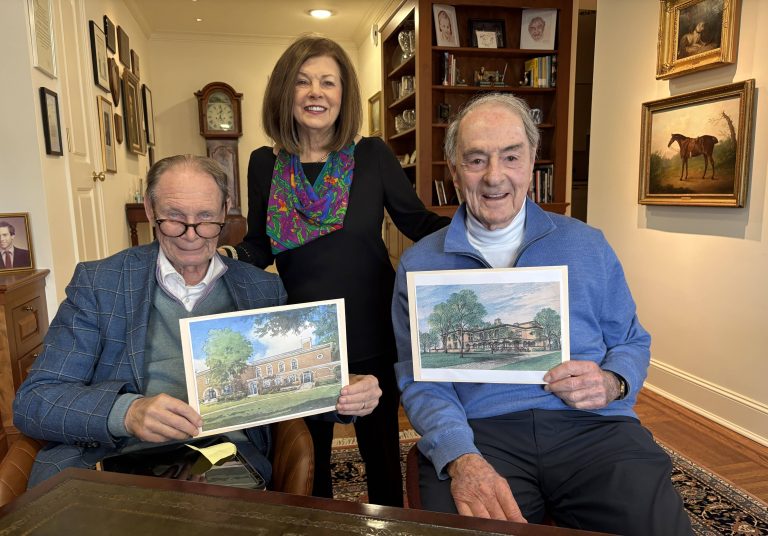
By Drew Williams
Many of us, paralyzed by the immensity of injustice and suffering in this world, end up sitting around doing nothing but feeling intense guilt.
The prophet Micah sums up the response God is looking for: “He has shown you, O man, what is good; and what does the Lord require of you but to do justice, and to love kindness, and to walk humbly with your God.” (Micah 6:8). The “you” in the original language is plural. This response is something that we can only do together… as the extended family of God… in the power of His Spirit. How we do that?
First, we do justice. Pastor and author Tim Keller recalls a time in the mid-1980s when he was a professor at a theological seminary and one of his students was a young man named Mark Gornik. One day they were standing at the copier and Mark told Tim that he was about to move to one of the poorest and most dangerous neighborhoods in Baltimore. Surprised, Tim asked him why. Mark said simply, “To do justice.” Mark later wrote: “For the first couple of years there, it was touch and go. The police thought I was a drug dealer, and the drug dealers thought I was a police officer. So, for a while there, I didn’t know who was going to shoot me first!” Although Mark had been living a comfortable, safe life before going to Baltimore, he became concerned about the most vulnerable, poor and marginalized members of society, and made long-term personal sacrifices in order to serve their interests, needs and cause. That, according to the Bible, is what it means to “do justice.”
To summarize Tim Keller’s study on justice, mishpat (the Hebrew word for “justice”) occurs in its various forms more than 200 times in the Hebrew Old Testament. Its most basic meaning is to treat people equitably or fairly. But mishpat means more than just the punishment of wrongdoing. It also means giving people their rights, protection or care. Over and over again, mishpat describes taking up the care and cause of widows, orphans, immigrants and the poor. In pre-modern, agrarian societies, these four groups had no social power. They lived at subsistence level and were only days from starvation if there was a famine, invasion or even minor social unrest. Today, this would include the refugee, the migrant worker, the homeless, and many single parents and elderly people.
But there is a second Hebrew word that can be translated as “being just,” though it is usually translated as “being righteous.” That word is tzadeqah, and it refers to a life of right relationships.
In the Bible, tzadeqah refers to day-to-day living in which a person conducts all relationships in family and society with fairness, generosity and equity. It is not surprising, then, to discover that tzadeqah and mishpat are brought together scores of times in the Bible. These two words roughly correspond to what some have called “primary justice” and “rectifying justice.”
Rectifying justice is mishpat. It means punishing wrongdoers and caring for the victims of unjust treatment. God is telling us, through Micah, to get at least as energized about someone else being the victim of injustice as we are when we are the victim. In particular, be concerned about injustice to those who the rest of the world are inclined to overlook.
Primary justice, or tzadeqah, is behavior that would render rectifying justice unnecessary if it were prevalent in the world, because everyone would be living in right relationship to everyone else. For me, a beautiful example of this kind of justice is the global health NGO, Partners in Health (“PIH”). The men and women of PIH are committed to building hospitals in the poorest communities on Earth and training local people in community health care. More locally, I would also celebrate the work of Building One Community in Stamford, an organization devoted to helping immigrant families find employment by providing training and language building opportunities.
Second, we are to love kindness. The word Micah uses is “hesed.” In the Old Testament, it is the word most closely associated with God’s lovingkindness expressed in the covenant, which is the basis of His relationship with human beings. It is steadfast love that always seeks to express itself in action. Steadfast — something that never gets knocked off course and does not give up.
The truth is, this kind of love does not come naturally to us. C.S. Lewis wrote, “To love at all is to be vulnerable. Love anything and your heart will be wrung and possibly broken. If you want to make sure of keeping it intact, you must give it to no one…” And then Lewis says, “[Your heart] will not be broken; it will become unbreakable, impenetrable, irredeemable. To love is to be vulnerable.” So, what do we do?
I need you… and, quite possibly, you may even need me. The community of God’s love is the place where we are shaped. Mark Gornik saw great change in downtown Baltimore because he worked with leaders in the community, and established a church community with a comprehensive set of ministries that have slowly transformed the neighborhood. In community we discover what we can accomplish so much more together. We encourage one another. We show up at an event to support a good friend because she is passionate about the suffering of others. When we get there, we find that very soon we are touched by the same plight and her passion becomes our passion. The community of His Spirit is the crucible where we grow in God’s heart.
Finally, Micah would exhort us to walk humbly with God. Why do we need humility? Why does Micah end with this heart quality? Why not zeal or passion?
In my early days of ministry, I took a group of teenagers to Belo Horizonte, Brazil, to work with a street children project. We stayed at a beautiful farm in the mountains where boys who had lived on the streets were raised as a family. Toward the end of our stay, we organized some sports for the boys and everyone had a great time. At the end of the afternoon, one of the boys turned on the sprinkler system on the sports field and we all got soaking wet. There was a lot of laughter. Sadly, while all this goodness was taking place, one young boy (about nine years old) slipped away and took the opportunity to go through my team’s belongings and steal all the cash he could find. He rather gave himself away by magnanimously buying ice cream for all of the boys on the farm. When challenged, he firmly denied the robbery. We left him to think things over and while we were not looking, he walked to the end of the lane and jumped on a bus back to the city. Someone sounded the alarm and we pursued the bus by car for the 45-minute drive into the metropolis of Belo Horizonte. I had never been in a car chase before! We arrived just moments after the bus did, but it was time enough for this little boy to melt into the crowd of one and a half million people. We lost him. We found his discarded backpack by the bus stop. It contained a brand new football, some candy and a few dollars that constituted the remainder of the cash. It was a tragedy. It had taken years to persuade him to come off the streets, live on the farm with a family and receive an education. In less than an hour, we had lost him.
What did I learn about humility through that experience? To do justice, to love kindness, will humble you. We cannot do this work in our strength. Ecclesiastes 5:2 reminds us that “…God is in heaven and [we] are on earth.” God desires to give us an attitude of heart that causes us to lean into His patience, His hope and His strength.
I also believe that Micah included humility as an essential quality of heart because it’s hard work to seek to do justice and not get self-righteous about it. In Part 1, I pointed out that the Old Testament prophets often sounded grouchy. Why? The prophets were given a heavy burden of looking at the world and seeing what God sees and knowing what God knows and feeling what God feels — and it crushed them. What burns most deeply in the heart of a true prophet is not anger but love.
Humility will allow us to continue on with what will often feel like thankless work despite the inevitable setbacks. What’s more, our self-reliance will always put a cap on what can be done. Despite this tragic setback, the ministry in Belo Horizonte continues. God knew where that little boy was that day we lost sight of him. Even now, as a young man, he has never been out of the sight of God.
Through the Cross, Jesus plunged into the midst of all injustice, all unkindness and all arrogance… making atonement for our brokenness. In His resurrection, He has made a way for us, as a family, to humbly follow Him in the power of His Holy Spirit as doers of justice and lovers of kindness.
Where is God calling you to take your place in His loving kindness? Every one of us is needed. There is a unique place that He has made for you and for me to serve together to push back the darkness.
The Rev. Drew Williams is senior pastor at Trinity Church in Greenwich.




